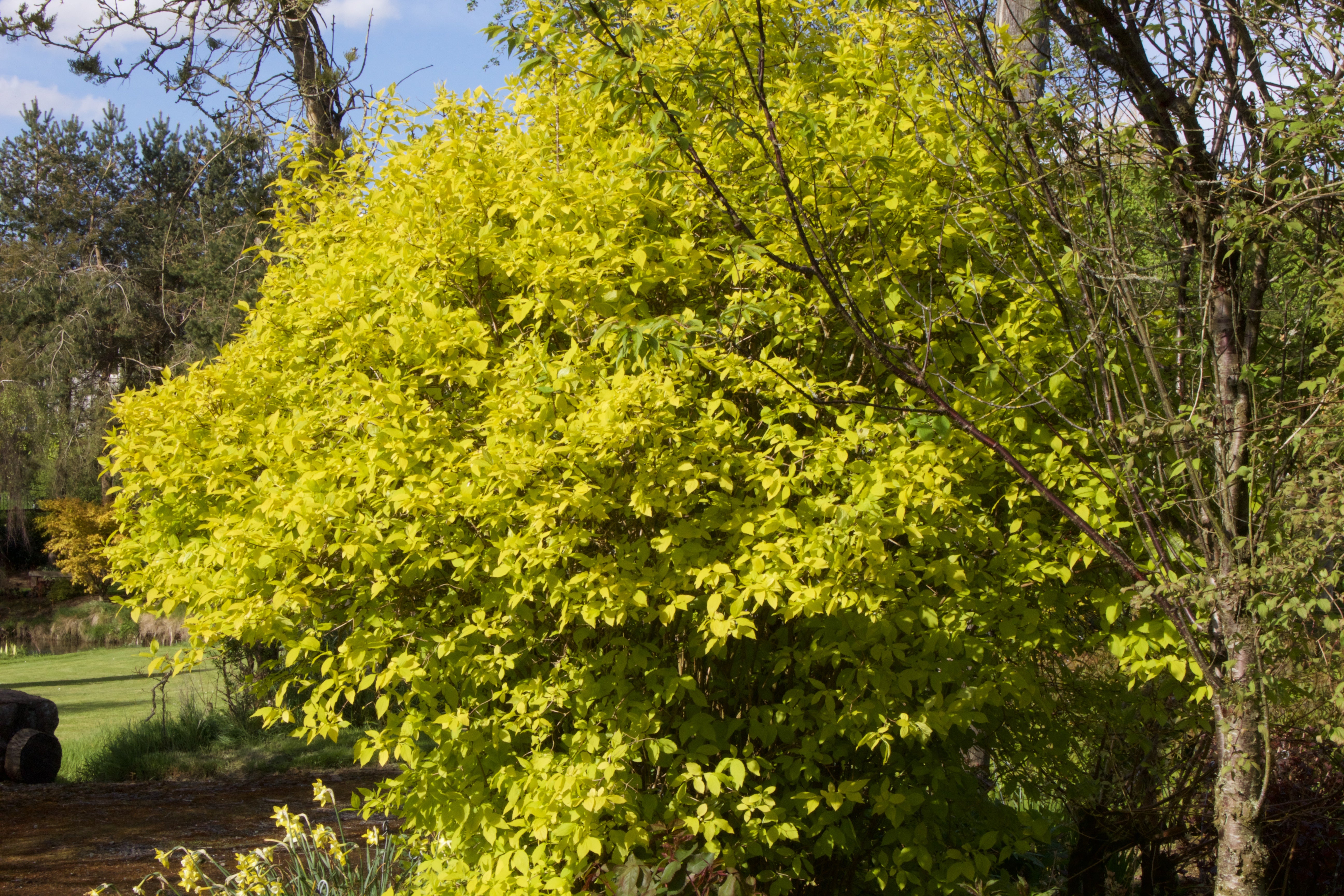Philadelphus coronarius 'Aureus'
Approx. 0.5 litre pot
About this cultivar:
Philadelphus coronarius 'Aureus' is an upright, medium-sized deciduous shrub with ovate leaves bright yellow when young, later greener. Flowers 2.5cm in width, creamy-white, with a strong, heavy scent, in early summer. The species name coronarius means used for garlands but for the latin-less: the common names are sweet mock-orange or English dogwood.
- Position: Full sun, partial shade
- Soil: Almost any soil, grows well in Ballyrobert
- Flowers: May, June, July
- Other features: Bees and Butterflies, Scented, Royal Horticultural Society Award of Garden Merit (RHS AGM)
- Hardiness: Fully hardy, grows well in Ballyrobert, H6 - Hardy in all of UK and northern Europe (-20 to -15°C)
- Habit: Bushy
- Foliage: Deciduous
- Height: 105 - 165 cm (3.5 - 5.5 ft)
- Spread: 105 - 180 cm (3.5 - 6 ft)
- Time to full growth: 5 to 10 years
- Plant type: Shrub
- Colour: Green, white, yellow
- Goes well with: --
About this genus:
Philadelphus (mock-orange) is a genus of about 60 species of shrubs from 1 to 6 m tall, native to North America, Central America, Asia and (locally) in southeast Europe.
They are named mock-orange in reference to their flowers, which in wild species look somewhat similar to those of oranges and lemons at first glance, and smell of orange flowers and jasmine. But Philadelphus is not closely related to jasmine quite distant indeed from oranges and lemons. An entirely misleading name for Philadelphus that is sometimes encountered is syringa; this properly refers to the lilacs, which are fairly close relatives of jasmine. The connection of the two shrubs lies in their introduction from Ottoman gardens to European ones, effected at the same time by the Holy Roman Emperor's ambassador to the Sublime Porte, Ogier Ghiselin de Busbecq, who returned with both to Vienna in 1562.
This classic and easy-to-grow hollow-branched shrub was used by the Turks to make pipes. Its Latin name means brotherly love and its orange-blossomlike fragrance has enhanced teas, perfumes, and almost certainly, many friends’ walks in the garden.






